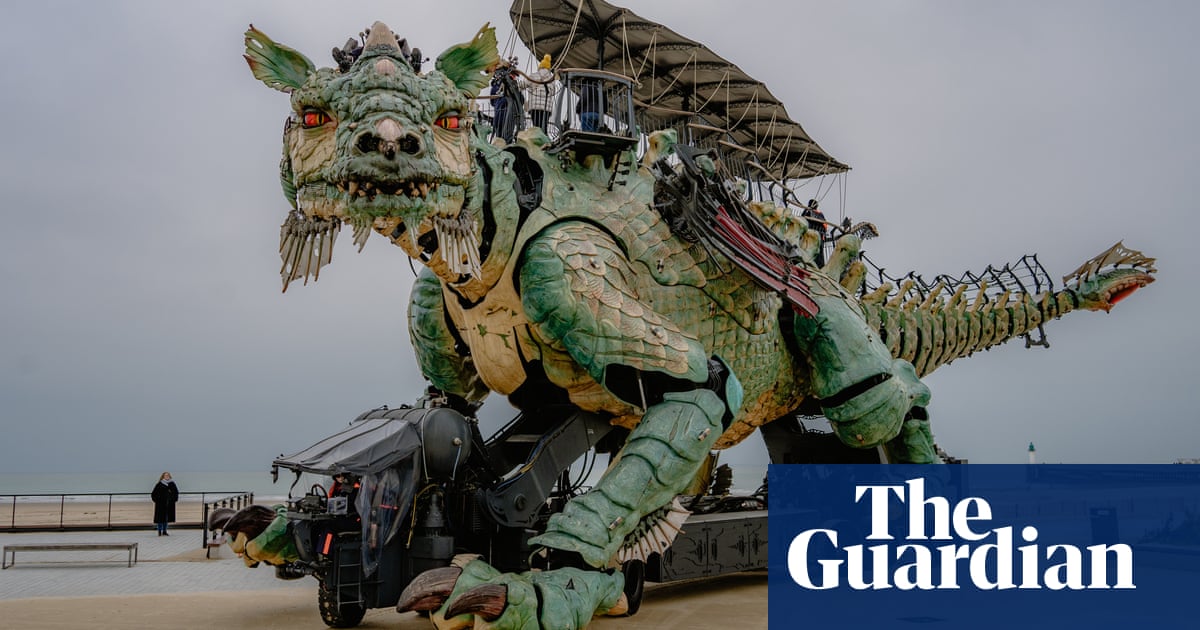After the closure in 2016 of the Calais refugee camp known as the “Jungle”, crossing to the UK from France has become even more dangerous, mostly as a result of increased state security measures and the militarisation of the border.
According to the International Organization for Migration, at least 78 people died attempting to reach the UK in small boats in 2024, the highest number yet.
There are about 700 displaced people in Calais, mainly from Sudan, Syria and Eritrea. They are not permitted to put up tents and the police in the seaside city carry out evictions of the camps three times a week.
According to demonstrators at a protest against these policies in January, the evictions are carried out at a fast pace, with tents and sleeping bags seized by the authorities, who are desperate to prevent another permanent camp being set up.
The city’s hostile environment includes barbed wire, boulders to prevent tents from being erected, and surveillance devices. This is a result of an agreement under which the UK has paid the French government hundreds of millions of pounds to deter displaced people from coming to Calais and attempting to cross the Channel.
Despite this inhospitable urban landscape, the municipality of Calais has been attempting to attract more tourists.
This was symbolised by the appearance in 2019 of the “Calais dragon”, a fire-breathing colossus built of steel and carved wood. The construction, which can carry 50 visitors at a time, was the first stage of the planned renewal of the city.
According to the Maritime Prefecture of the Channel and North Sea, the increased surveillance and policing of the Calais beaches has led displaced people to attempt more perilous routes from other points along the coast, some as far south as Dieppe.
It says this maritime sector is one of the busiest in the world, “with more than 600 commercial vessels passing through it every day and the weather conditions are often difficult, making it particularly dangerous, even when the sea seems calm”.
Last week, for instance, the French navy’s public service patrol boat Cormoran rescued 77 occupants of a small boat who had called for help and brought them back to Calais.
-
Zizo, 21, from Sudan, dreams of becoming a hairdresser in the UK
Figures released by the UK Home Office show that 36,816 people crossed the Channel in small boats last year.
Everyone on the coast at Calais is aware that attempting the journey is a life-threatening proposition, but more are undertaking it: crossings this year have increased by more than 40% compared with the same period in 2024.
The family of a seven-year-old girl who was crushed to death on a small boat participated in the protest in January.
Ahmed Alhashimi, an Iraqi, lost grasp of his daughter Sara on an inflatable dinghy after a large group of men rushed onboard as it was pulling away from the shores of Wimereux, south of Calais.
It was the family’s fourth attempt at a crossing of the Channel since they had arrived in the Pas de Calais region two months earlier.
-
Ferhad (left) fled Kuwait because he is Christian and does not feel safe there and Necmettin, who is Sudanese, has been in Calais for three months
Reform UK’s Andrea Jenkyns, in her victory speech after being elected as the mayor of Greater Lincolnshire this week, said: “We will tackle illegal migration. We’ve been working on policies.
“I say no to putting people in hotels. Tents are good enough for France. They should be good enough for here in Britain.”
In Calais, the displaced are denied even the shelter of tents.

